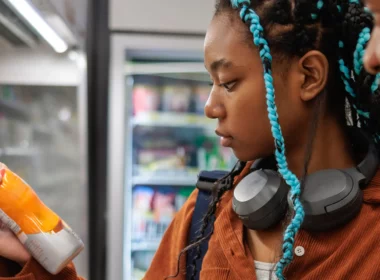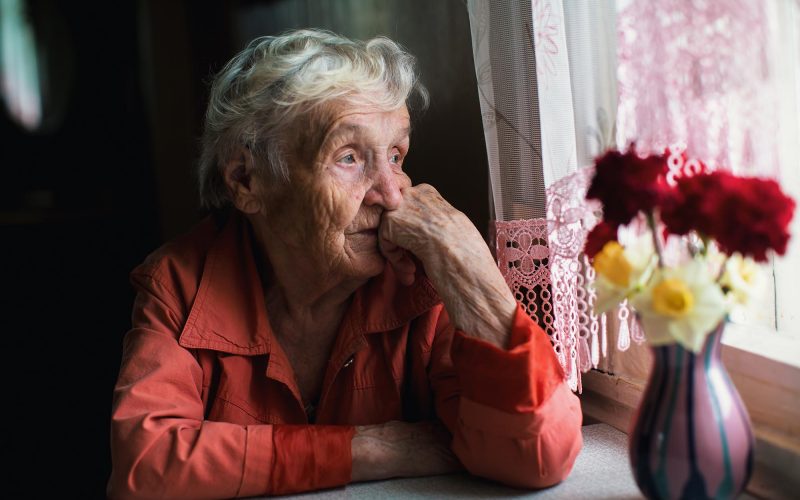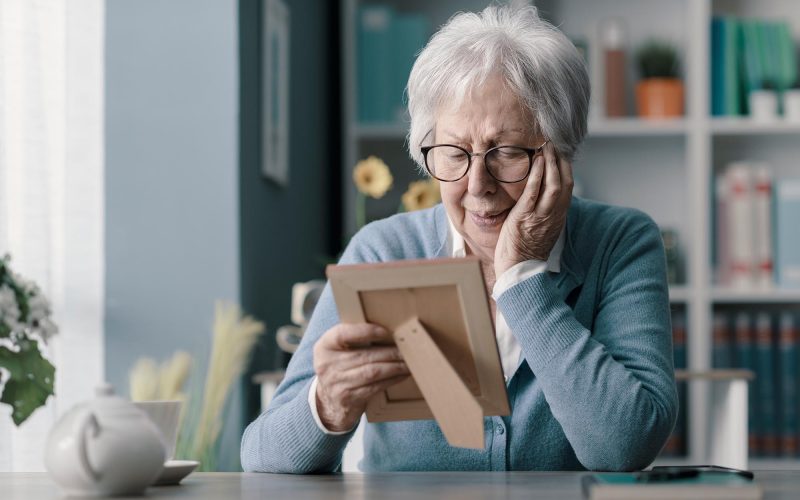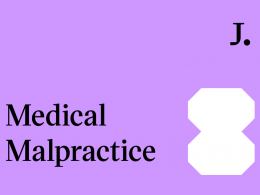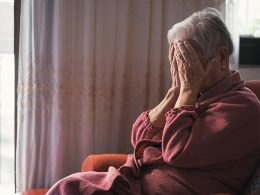As people age, it becomes more challenging to carry out routine tasks. Without proper care by loved ones, the elderly often have poor maintenance of home poor personal care, and poor nutrition. In other cases, caregivers view the elderly as a burden, neglecting and abusing them.
In the united states,10% of Americans aged 60 and above have experienced abuse at home, with approximately 5M elders abused annually. Unfortunately, only one in 24 elderly abuse cases are reported for action. Most elders are reluctant to report abuse due to fear and intimidation by the perpetrator.
Elder abuse is also common in nursing homes. In recent studies by WHO, 66% of assisted living facility staff admitted to abusing their clients in 2020.
Poor maintenance of home and poor personal care among the elderly
Elders struggling with poverty are likely to live in devastating conditions, especially if they are not well taken care of. Recent statistics show that 15 million Americans aged 65 and above struggle economically. As a result, they cannot meet their basic needs and thus are at the mercy of their caregivers. This makes them vulnerable to abuse by their caregivers, families, and neighbors.
Most people aged 65 years and above suffer from certain illnesses and conditions which affect their physical and mental abilities. They often suffer from hearing loss, dementia, depression, diabetes, chronic obstructive pulmonary disease, back and neck pain, osteoarthritis, cataracts, and refractive errors. The effects of this is poor maintenance of homes they live in and poor personal care.
In most cases, an individual may suffer from several conditions making it challenging to undertake routine personal care. Elders, therefore, require assistance and supervision of personal daily living tasks such as dressing, showering, personal appearances, personal hygiene, and toileting. For this reason, poor hygiene is a common problem among seniors living in poverty.
Also, elderly persons are less likely to maintain their homes due to neglect, low finances, less ambition, low energy and mental levels, social isolation, and disabilities. When not cared for, they often live in dirty and poorly maintained homes. These conditions are often a cause of hazards such as falls and diseases.
Forms of Elderly Abuse, Signs, and definition:
Aging is a natural process where an individual loses functionality. And, when not given proper care, elders live in devastating conditions facing abuse which is a leading cause of death. Poor maintenance of home poor personal care among persons 65 years and above is also a sign of elder abuse.
Statistics show that 7.3 million Americans aged 60 and above were at risk of hunger in 2018, representing 10% of the adult population. Lack of access to food leads to problems of poor nutrition and increased vulnerability to illnesses.
According to the National Center for Elder Abuse, there are seven types of elder abuse, and they include:
Physical abuse
One of the most common forms of elder abuse is the intentional use of force on an elderly individual, causing pain, injuries, or discomfort. It could be through physical retraining of the victim or the excessive use of force on them, harming them. Elders experiencing physical abuse may present injury signs such as cuts/scrapes, burns, and broken bones such as hip fractures and sprains.
Most of these cases go unreported, and the elder may not provide a clear explanation of how the injuries occurred. Also, there is a delay in the treatment of injuries.
Sexual abuse
Elder sexual abuse cases are under-addressed because most victims have mental and medical problems making it difficult to report or explain what happened. It often occurs in victims with cognitive conditions such as dementia and Alzheimer’s, making it difficult for the individual to give consent or distinguish perpetrators for prosecution.
70% of the reported elder sexual abuse cases occur in nursing homes in their caregivers’ hands, making it even more challenging to report and prosecute. Young adults often perpetrate those occurring outside assisted living facilities. In other cases, perpetrators include friends and family.
Signs of elder sexual abuse include pain, bruises, bleeding from the genitals and anus, sexually transmitted diseases, walking difficulties, and pelvic injuries.
Neglect
Seniors often suffer from neglect, whereby they don’t receive the necessary care and protection. The consequences of elderly neglect are harm, illnesses, and injuries. It can occur at home or in assisted living facilities. In nursing homes, neglect occurs from carelessness and disregard for the needs of residents, which might affect their health.
Common signs of neglect include personal care and dietary neglect, dehydration, inadequate hygiene, lack of food, improper medical care and lack of medical aids, messy and unsafe homes with malfunctioning heaters, weight loss, and unpaid bills.
Neglected elderly victims can suffer serious health problems. Common health indicators of ____________ elder abuse through neglect include bedsores, acute onset of infections or sepsis, and death. Neglect in nursing homes often occurs from under-staffing.
Self-neglect
Elderly persons suffer from self-neglect when they have decreased ability to meet their daily needs, such as:
- Drinking or feeding themselves
- Dress on their own
- Clean themselves
- Maintain their homes
- Manage finances
- Look after their medical need
In most cases, older adult struggles to acknowledge their condition and let go of their independence. If the elderly can no longer care for themselves, they need to have caregivers or be enrolled in an assisted living facility with a patient’s residence. Remember, poor feeding can affect their immune system making them more susceptible to illnesses.
Elder abandonment
Abandonment occurs when the person who is meant to care for an elderly person deserts them. It can occur at home, in hospitals, or assisted living facilities alone or with people who do not agree to caregiving.
In such cases, the indicators of ____________ elder abuse through abandonment include victims staying alone, appearing confused, lost, and scared. They may also have poor personal care and dietary neglect, dehydration, malnourishment, and frail health. As a result, the victim’s health is affected and is also put in danger and at risk of other forms of abuse.
Emotional abuse of the elderly
Definition: intentional emotional and psychological acts that cause distress, mental pain, and fear to an elderly person. The perpetrator can belittle the victim, isolate them, deny them specific resources, threaten them or call them names.
Possible indicators of elderly victims of psychological abuse take the form of altered mental status: withdrawal, fear/anxiety, and depression. They also avoid eye contact, show changes in sleeping and eating patterns, isolate themselves from friends and family, have low self-esteem, sudden mood changes, peculiar behavior, and change in personalities.
Generally, victims of any form of abuse are affected emotionally and psychologically and are likely to exhibit these signs.
Financial abuse
Financial abuse is prevalent among the elderly. It occurs when caregivers take advantage of the elder’s weakness and misuse their finances. In other cases, the elderly fall prey to financial schemes by strangers who rob them.
Sometimes, caregivers force the older adult to transfer money, sign financial documents, draw a will, and transfer property. Elders also lose money to strangers through certain websites. In the united states, it is estimated that elders lose $36.5 billion annually to financial abuse.
For Elderly persons suffering, watch out for the following observations::
- Loss of property and belongings such as gems and diamonds
- The elderly not aware of their financial situation
- Suspicious bank transactions and statements:
- Changes in the power of attorney
- Unpaid bills and eviction notices
- Suspicion as someone shows unexplained interest in the elder’s finances
Elderly abuse in assisted living facilities
Caring for the elderly can be tasking for families, especially if the individual suffers from certain illnesses such as diseases of the respiratory system, dementia, and Alzheimer’s. The decision to move a loved one to an assisted living facility is not always easy. However, in some cases, the elderly are better cared for in nursing homes. These facilities as they have specialized staff and equipment to provide the necessary assistance to older patients.
Services accessed::
- Help with daily personal tasks
- specialized health care services
- Elderly safety
- Provision of social support services
- Proper regular meals
- Housekeeping services
Nursing homes and assisted living facilities in the United States play home to 1.5M or 4.5% of older adults. Assisted living facilities, on the other hand, house 1M or 2% of the elderly population. The remaining majority, 33.4M or 93.5%, live within their communities.
Nursing homes and assisted living facilities do not always provide the necessary safety and good living conditions for their residents. Some elderly patients living in these facilities fall victim to all forms of abuse by staff, including financial exploitation, sexual abuse, aggression, health neglect, .and emotional abuse that slows down their healing process.
Staff and management don’t often report these cases for fear of negative publicity, causing perpetrators to walk freely.
What are the effects of elderly abuse?
- In many cases: the abused elderly suffer from fear, depression, and withdrawal from their family and friends.
- The victim’s health may deteriorate, leading to a decreased respiratory system, reduced activity of functional cilia, and early death, especially where the victim suffers from a medical condition such as heart disease.
- Family conflicts may occur where the perpetrator is a family member.
- Some forms of abuse come with substantial financial implications or losses, causing long-term financial problems to the family.
How do you protect the elderly from abuse?
- It is critical to keep an eye on loved ones and take their complaints seriously.
- Always assess and research the services offered by assisted living facilities before enrolling your loved one. This assessment will help you find a perfect environment for their care and can be done by checking out reviews and any possible abuse cases and complaints on the internet.
- Call 911 if you think an older adult is in immediate danger
- Abuse can come from anyone within the community or in assisted living facilities. Keep a regular check on loved ones especially geriatric patients in assisted living facilities, and watch out for signs of elder abuse
- After using a website, teach your elder loved ones to close the web pages they access and delete their browser history.
- In case of suspected elder abuse, report them immediately to the police or alert the local Adult Protective Services (APS) office and have them record statements: where possible. An attorney can help you get justice and compensation.
- Avoid leaving the elderly in isolation which causes poor maintenance of home poor personal care, and seek them medical treatment whenever they are ill.
Conclusion
Aging occurs naturally and is inevitable. Our elderly loved ones might not be ready to admit they need help, which often leads to neglect and poor maintenance of home poor personal care. Remember, the elderly are more vulnerable in the absence of their loved ones.
To enjoy a prolonged life with them, we need to take care of them and get them the necessary help. It is always good to enroll them in assisted living facilities when necessary, especially with those suffering from chronic illnesses. Not all nursing homes abuse resident patients; always research their quality of care and ask for their preferences: before enrolling your loved one.





